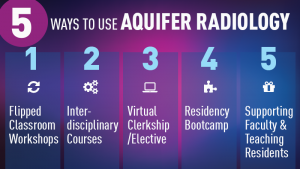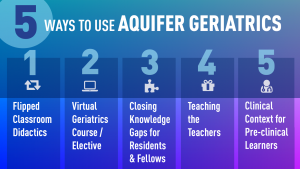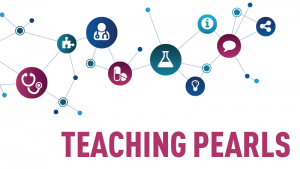Educator-to-Educator Tips & Strategies
Find out how your peers are making the most of Aquifer cases and teaching tools.
Find out how your peers are making the most of Aquifer cases and teaching tools.

At Florida Atlantic University Charles E. Schmidt College of Medicine, we are supporting our fourth-year students with flexible online elective rotations by adapting the model we created during COVID. Our virtual asynchronous electives–built with Aquifer cases and WISE-MD modules and implemented on the fly during lockdown–proved valuable to students, earning positive feedback and course reviews. With a few minor modifications, we are continuing this offering in response to student requests and the wide range of time-consuming requirements in the fourth year.

The 19 cases in Aquifer Radiology are designed to meet the needs of a wide range of learners and fit into many teaching modalities. Top radiology educators presented their successful strategies for integrating the cases in our recent webinar–find out what they shared…

The 27 cases in Aquifer Geriatrics are designed to meet the needs of a wide range of learners and fit into many teaching modalities. Top geriatrics educators from around the country presented their successful strategies for integrating the cases in our recent webinar–find out what they shared…

In many Aquifer cases, students are asked to write out a one to three sentence summary statement that mimics the communication skills they need on rounds, calling consults, and writing patient progress notes. Reviewing a selection of these statements provides an opportunity for faculty to provide meaningful, targeted feedback on clinical reasoning skills.

Due to curriculum modifications related to the COVID-19 pandemic, our clerkship directors were charged with developing a virtual curriculum to keep students engaged in clinical learning activities while suspended from participation in face-to-face clinical care. Rather than develop a virtual curriculum for each individual clerkship…
Notifications